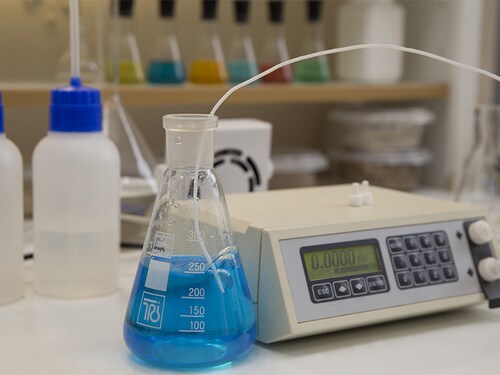Indian chemical industry: Budget 2017 expectations
With the high significance of chemical industry in Indian economy, here are the expectations from government to address the bottlenecks and growth
Chemical industry in India is the third largest producer in Asia and sixth largest in the world. Indian chemical industry is expected to double its share in global chemical industry to 5-6% by 2021 registering growth of 8-9% in the next decade. Number of MNCs are focusing on India for their manufacturing hub. Lower cost of labour, availability of key raw materials, large consumer markets and adaptability to technology are some of main attractions for having a strong manufacturing base in India.
With the high significance of chemical industry in Indian economy, following are the expectations from government to address the bottlenecks and growth:
Incentives for export units under make-in-India program: Indian chemical industry is a net importer with imports of USD 19 bn compared to exports of 12.7 bn for FY15. Government needs to incentivise the Chemical units set-up with new technology catering to export market to give boost to the exports in turn reducing the current account deficit.
Sooner rolling out of GST with capped rates: Though government has achieved consensus on bringing legislation on GST, its sooner roll-out is essential for benefit of certain industries including Chemical industry, which have capital intensive manufacturing locations and number of logistical activities to reach customers. Presently, for inter-state sale of goods, most companies set up a warehouse in the destination states and resort to a stock transfer for bringing tax efficiencies which would not be required in GST regime; also, it will reduce administrative burden of multiple taxes. This will potentially improve efficiencies and reduce costs. Capping of GST rates at 18% – 20% for chemical industry will have strong positive impact on the sector.
Rationalisation of Corporation tax: Chemical industry with continuous development needs to plough back significant amount of profits for its growth. A reduction in corporation tax would lead to fund technology and modernisation which will lead to faster growth in longer run.
Rationalisation of taxes in SEZ: The purpose of SEZ has not been served as much as desired when the reforms were first introduced. Government needs to rationalise taxes, especially removal of MAT, levied on the units located in SEZ which could also augment the make-in-India initiative.
Competitiveness of domestic players: There are instances of inverted duty structure in several products where customs duty on import of final product is lower than its raw material . This makes it difficult for the domestic players to effectively compete in the market. Government should revisit the duty structure for the specific products where rationalisation is required for protection of domestic industries.
Technology transfer: The key aspect of the chemical industry, especially specialty chemicals and agricultural chemicals, is the technology based on which the performance / yield is measured. While Government has provided tax incentives for R&D, it is essential to support / fund the technology acquired by domestic industries for rising to the global standards. Government should consider a budgetary allocation for partially funding such technology which would be in a larger interest of the economy. Simultaneously, government would also need to put a better patent protection roadmap in place to avoid infringement of technology.
Infrastructure: Government initiatives like PCPIRs and cluster approach are in the process of implementation; nevertheless, there is quite a delay in project execution. An allocation for building robust infrastructure to support such clusters on a PPP model would help in smoother and timely completion of projects in such regions.
Skilled manpower: With the rapid growth in chemical industry, players are facing short fall in availability of skilled manpower / chemical engineers. To cater to this, Government needs to invest in setting up skill based training institutes and more ITIs.
Reduction in import duty on key feedstock and key inputs: To help the industry, and impact on its already low margins, import duty on key petrochemical feedstock like Naphtha, Ethane, Propane and Reformate needs to be rationalised. India is facing challenges due to cheap imports from low power cost countries in South, SE Asia & Middle East. In terms of technology, India is second only to Japan in adoption of latest technology by investing substantially. However, the high cost of power renders Indian manufacturing at a comparative disadvantage. Import duties on various substance like membrane cell plant, soda ash, pvc, edc, and VCM should be reduced.
National Chemical Policy: National Chemical Policy is being proposed for a long period which needs to be formulated to provide enabling environment, infrastructure and duty structure for the Chemical industry in the country. It will place a framework for promoting safety & security and R&D in the sector. This will help India’s chemical industry to grow and become more competitive.
Information for the editor for reference purposes only
- By Savan Godiawala, Partner with Deloitte Touche Tohmatsu India LLP
